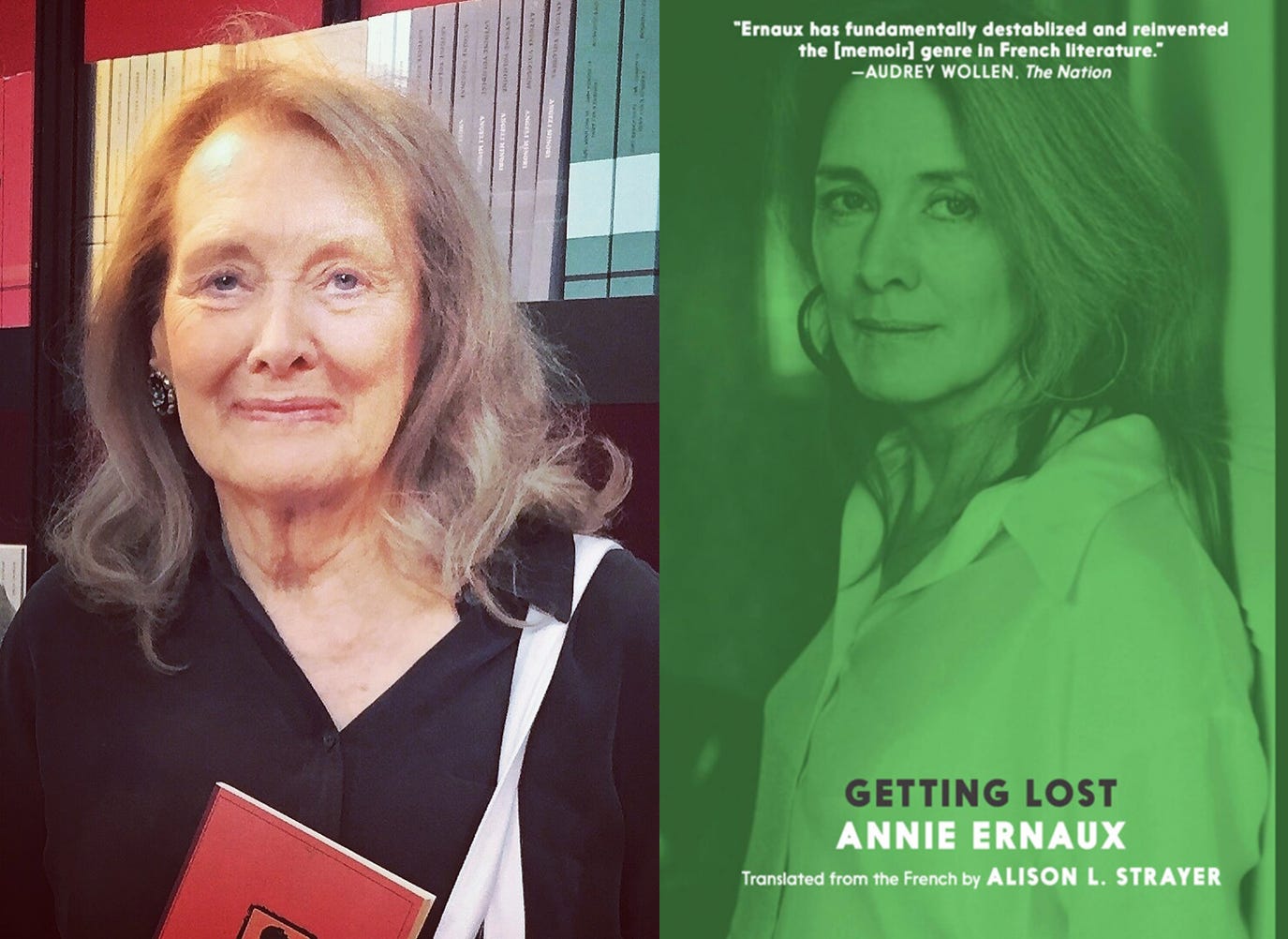Getting Lost
Annie Ernaux
Seven Stories Press, 240 pages, 2022
Even translated into English, contemporary France puts out far better books than America or Britain. Perhaps this is because of a higher cultural standard, or a greater general appreciation for literature, or simply random chance; whatever the reason, the average French novel or memoir contains richer themes, more beautiful imagery, and more deftly crafted prose than the native-English average. Michel Houellebecq? So brilliant that “greatest living literary satirist” seems like an understatement (but who can compete, now that we’ve lost P. J. O'Rourke?). Find me a better recent literary trilogy than the Vernon Subutex series by Virginie Despentes; or a memoir better written than Phillipe Lancon’s Disturbance. It’s one of a few books whose prose is so beautifully written that I almost loath the writer’s talent. And this doesn’t mention Nina Leger, Édouard Louis, David Diop, and the mysterious Antoine Laurain.
And so it was little surprise when, on October 6th, the celebrated Annie Ernaux won the Nobel Prize for Literature. The timing couldn’t be better, barely a few weeks after the translated release of her latest book, Getting Lost, which is a collection of journal entries she wrote during the relationship at the center of her most famous book, Simple Passion. That romantic auto-fiction masterpiece birthed the ‘sex-positive, woman-centric’ novel trend, spending eight months on the French best-seller charts, and opened the door to the Sally Rooneys of the world (but don’t hold that against her). Within her slim volume, Ernaux opened up a whole new subgenre of “hot girl” writing, talking frankly and beautifully about sex, from a distinctly female position; and Getting Lost is where that all started.


